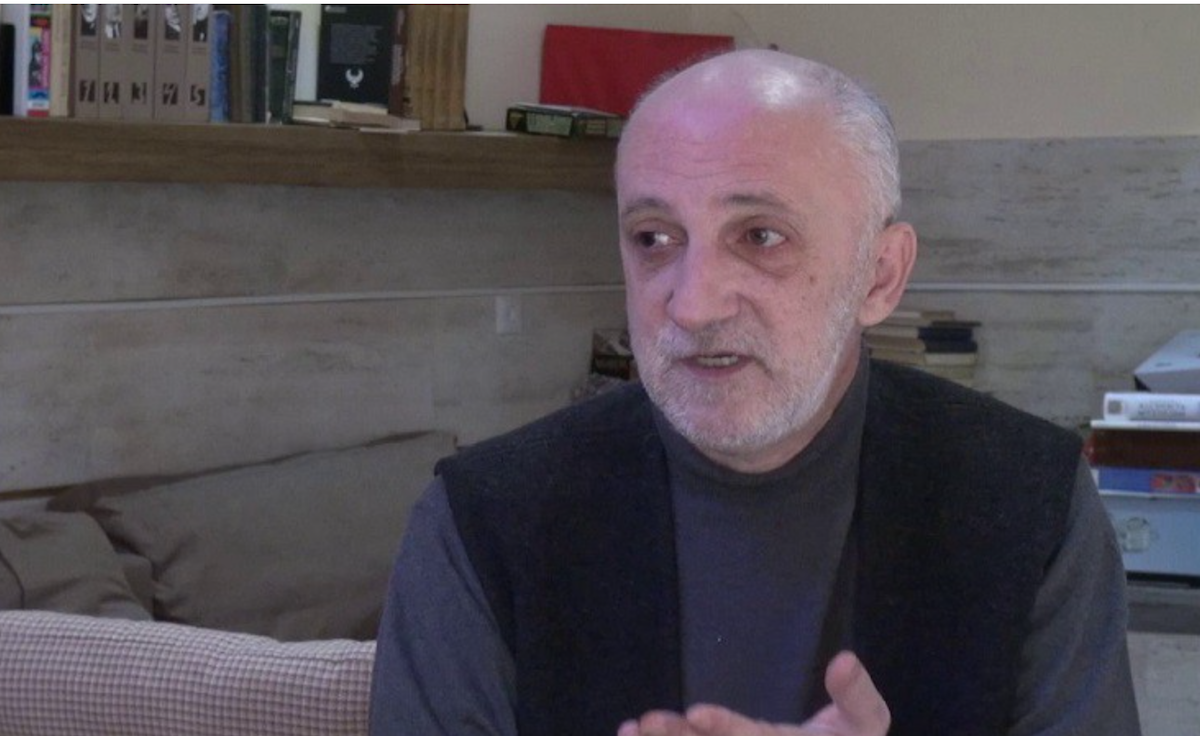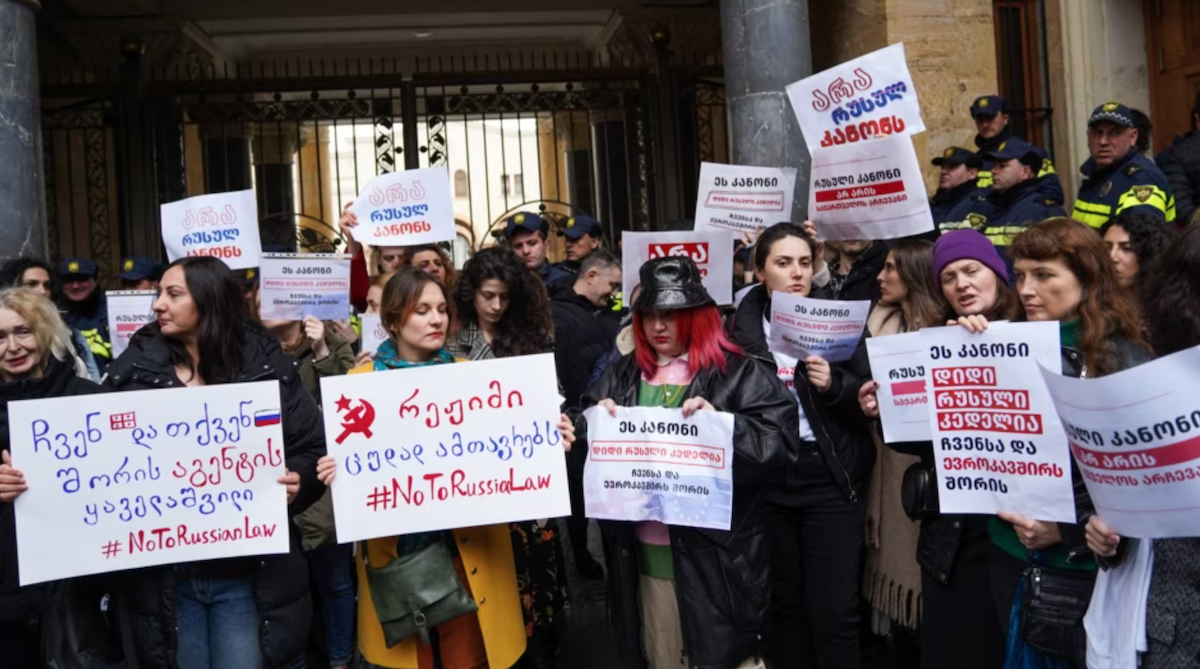Georgia's Prime Minister: "We are open to arguments on the 'transparency' and 'family values' laws"
Will Georgia revise the “foreign agents” law?
Georgia’s Prime Minister Irakli Kobakhidze said authorities are “fully open to reasoned public discussion” on the laws “On Transparency of Foreign Influence” (the so-called “foreign agents” law) and “On Family Values and the Protection of Minors” (targeting “LGBT propaganda”).
Kobakhidze made the remarks while speaking to journalists on the sidelines of the COP29 environmental summit in Baku on 13 November.
“Thorough discussions on these two laws are essential,” Kobakhidze added.
What did Irakli Kobakhidze say?
“We have a very clear position regarding the ‘Transparency of Foreign Influence’ and ‘Family Values and Protection of Minors’ laws.
If it can be proven to us that a lack of transparency in NGO operations is better than transparency, then let’s discuss that.
The same goes for the ‘anti-LGBT propaganda’ law. If it’s shown that anything in it contradicts legal principles or shared values, we are also open to a deep discussion on that.
We are always open to in-depth public debate. Ideally, this discussion should happen in front of an audience. We are fully open to all viewpoints, as long as they are well-reasoned,” said Irakli Kobakhidze.
How Georgia’s ‘foreign agent’ law differs fundamentally from similar laws in Western countries
Georgian authorities often claim that the country’s new law is comparable to similar legislation in the U.S. and Europe. However, this assertion is inaccurate, as highlighted by three key points:
1. The U.S. Foreign Agents Registration Act (FARA), cited by the ruling Georgian Dream party, was passed in 1938, on the eve of World War II. Its purpose was to protect the American public from Nazi propaganda. Then, as now, FARA has not applied to allies or friendly nations.
The same is true in France, where legislation on foreign state influence exists. The law specifically lists countries—Russia, China, Turkey, and Iran—that France considers potential threats. It also contains a provision explicitly exempting EU countries from its reach.
The Georgian law lacks any such provision, directly impacting organizations funded by Georgia’s allies and partners, like the U.S. and the EU, which contribute to democratic development in the country.
2. In foreign influence regulations in Western countries, such as FARA in the U.S., it is clearly specified that these laws do not apply to media and non-governmental organizations but are limited to lobbyist groups.
The law adopted in Georgia, however, is explicitly aimed at media and non-governmental organizations. In this way, it resembles Russian legislation, which has led to it being labeled the “Russian law” in Georgian society.
Notably, in Russia today, all independent NGOs and media organizations not controlled by the Kremlin have already been shut down.
3. The Georgian law contradicts EU legislation. A similar situation occurred in Hungary, but when the European Court ruled that Hungary’s law was directly intended to silence media and NGOs, Hungarian authorities repealed it.
The imposition of such restrictions on organizations funded by partner nations has led to speculation that Georgia may be shifting its foreign policy direction. This concern is voiced by politicians, independent experts, and civil society representatives both in and outside of Georgia.
Western community reaction
● The “transparency of foreign influence” law was passed by the ruling Georgian Dream party in a third reading on May 28.
● Under the law, organizations receiving more than 20% of their funding from abroad must register in a special registry established by the Ministry of Justice as “organizations acting in the interests of foreign powers.” The registration deadline was September 2, with 476 organizations voluntarily registering, according to the ministry.
● From September 3, the Justice Ministry’s financial monitoring department gained the authority to inspect and fine organizations that fall under the law but failed to register.
● The government enacted the law despite massive street protests and strong appeals from Georgia’s Western partners to abandon the initiative. The law received a strongly negative assessment from the Council of Europe’s Venice Commission.
● On May 23, U.S. Secretary of State Antony Blinken announced plans to impose visa restrictions, financial sanctions, and a comprehensive review of all aspects of bilateral cooperation in response to actions undermining democracy in Georgia.
● On June 6, the State Department announced a sanctions package, including visa restrictions affecting around 30 Georgian officials and members of parliament, along with their family members.
● On September 16, the U.S. Treasury Department imposed sanctions on Zviad Kharazishvili, head of Georgia’s Special Forces Department, known as “Khareba,” his deputy Miller Lagazauri, and leaders of the pro-Russian “Conservative Movement” Alt-Info, Koka Morgoshia and Zura Makharadze. Khareba and his deputy were added to the Magnitsky List for violence against peaceful protesters opposing the “foreign agents” law.
● Simultaneously, the State Department imposed visa restrictions on over 60 additional Georgian government and parliament members, including their families.
● The European Union also plans countermeasures, with EU officials repeatedly warning that the law distances Georgia from the European Union.
Arguments from civil society
All organizations whose income comes from more than 20% of grants from foreign countries will be declared as foreign agents. In a small, poor country like Georgia, this applies to almost the majority of non-governmental organizations.
With the help of the European Union and the U.S., vital projects have been implemented in the country over the past 33 years, ranging from healthcare and infrastructure to strengthening civil society.
Many non-governmental organizations and media outlets are refusing to register as “acting in the interests of a foreign power” or “foreign agents,” as required by the law. Such a label is insulting to these organizations and individuals: “We are working honestly in our country; why should we be called ‘carriers of foreign interests’?” they ask.





















